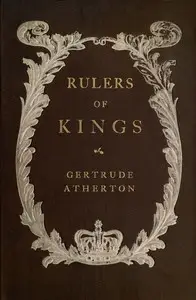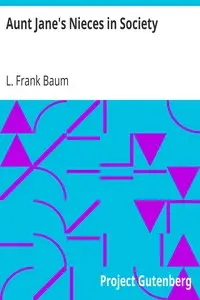"One of Our Conquerors — Complete" by George Meredith is a book set in late 1800's London that follows the adventures of Victor Radnor, a spirited man, as he deals with physical mishaps and deep thinking in his complex community. The story looks at themes of class differences and desires for accomplishments, focusing on the connections and clashes between different levels of society. The book begins with Victor Radnor falling on London Bridge, which leads him to think about his life. While he recovers, he considers his relationships, especially with his politically involved friend Fenellan and his family. The group of people around him suggests ongoing conversations about social beliefs, individual goals, and past burdens, especially those involving his wife, Nataly, and their daughter, Nesta. The begining sets the scene for a deeper look into Radnor's life as he struggles with internal and external conflicts, building the base for the social messages and character growth that make up the novel.

One of Our Conquerors — Complete
By George Meredith
Amidst societal expectations and personal desires in late 1800's London, a fall from grace sets a man on a journey of self-discovery and societal reflection.
Summary
About the AuthorGeorge Meredith was an English novelist and poet of the Victorian era. At first, his focus was poetry, influenced by John Keats among others, but Meredith gradually established a reputation as a novelist. The Ordeal of Richard Feverel (1859) briefly scandalised Victorian literary circles. Of his later novels, the most enduring is The Egoist (1879), though in his lifetime his greatest success was Diana of the Crossways (1885). His novels were innovative in their attention to characters' psychology, and also portrayed social change. His style, in both poetry and prose, was noted for its syntactic complexity; Oscar Wilde likened it to "chaos illumined by brilliant flashes of lightning". Meredith was an encourager of other novelists, as well as an influence on them; among those to benefit were Robert Louis Stevenson and George Gissing. Meredith was nominated for the Nobel Prize in Literature seven times.
George Meredith was an English novelist and poet of the Victorian era. At first, his focus was poetry, influenced by John Keats among others, but Meredith gradually established a reputation as a novelist. The Ordeal of Richard Feverel (1859) briefly scandalised Victorian literary circles. Of his later novels, the most enduring is The Egoist (1879), though in his lifetime his greatest success was Diana of the Crossways (1885). His novels were innovative in their attention to characters' psychology, and also portrayed social change. His style, in both poetry and prose, was noted for its syntactic complexity; Oscar Wilde likened it to "chaos illumined by brilliant flashes of lightning". Meredith was an encourager of other novelists, as well as an influence on them; among those to benefit were Robert Louis Stevenson and George Gissing. Meredith was nominated for the Nobel Prize in Literature seven times.



















